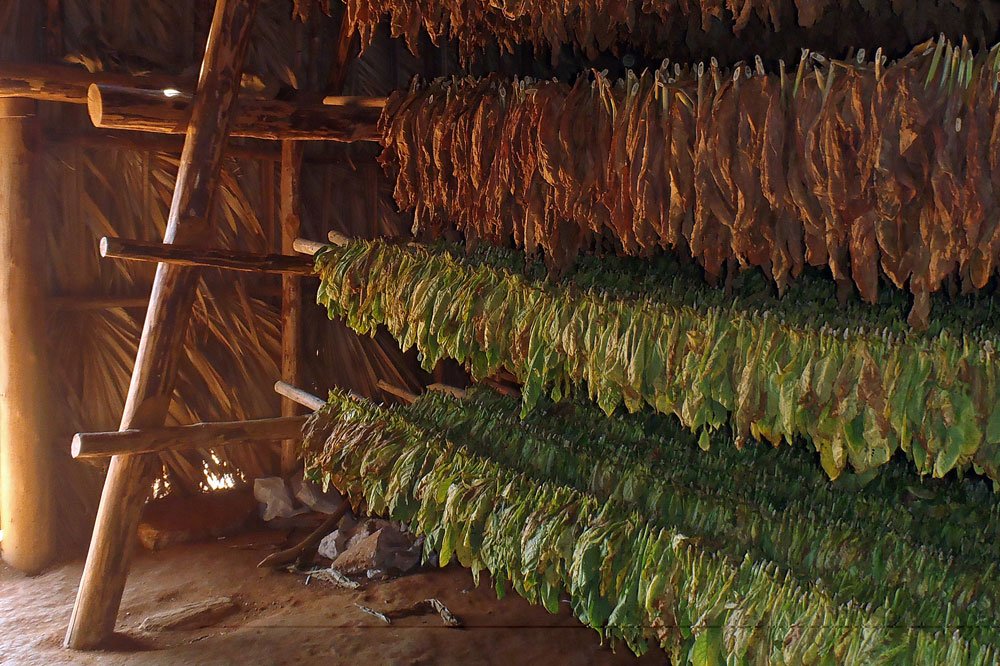When you think of Cuba, one of the first thing that probably comes into your mind is cigars. You may also wonder how this island’s tobacco industry became such an important part of its history, economy as well as culture. It’s a fascinating story.
In 1492, Christopher Columbus landed in Cuba. The native inhabitants had already been smoking tobacco for several centuries. They referred to the tobacco plant as Cohiba. The locals would roll its leaves in palm oil or maize before they would smoke it. Smoking tobacco this way intrigued Columbus. He brought some of the tobacco back to Spain. In a short time, the Spanish were very successful at trading tobacco as cigars. It soon became fashionable all over the Old World. The process resulted in huge profits. During this time, cigar factories were built in Spain and not Cuba. In 1676, the first of these cigar factories started production.
During the late 18th century, those involved with the growing cigar trade realized finished cigars were better able to survive a transatlantic voyage when compared to the tobacco leaf. This is the reason cigar factories were then built in Cuba. Cuban cigar brands in 1810 started registering for a trademark. In 1817, Fernando VII of Spain permitted free trade on Cuba. This is when the cigar industry really took off. Steamships were used to export Cuban cigars to countries around the world. Cigars had a reputation for being associated with wealth and power.
In Cuba’s Pinar del Rio province is the popular tourist town of Vinales. It is located near Cuba’s major tobacco growing areas. When Cuba’s cigar industry was nationalized after their revolution, it was a period of turbulence. At that time, the country was able to receive economic assistance from the Soviet Union. This assistance made things better in Cuba’s cigar industry. The quality of Cuba’s cigars increased with strict government supervision. The early 1990s are considered to be Cuba’s cigar industry’s golden era.
When the Soviet Union collapsed, its subsidies to Cuba stopped. This was a time when Cuba suffered and it was called the Special Period. During this time, Cuba’s tobacco farmers experienced shortages of fertilizer as well as fuel. There was a period of bad weather as well as an attempt to grow new tobacco hybrids and it all failed. There were new things attempted to increase production that also failed. They planted in unsuitable areas and that changed the processing of tobacco. Using a poorly trained staff didn’t help. All of these things combined to significantly decrease the quality of the cigars produced by Cuba.
The time known as the Special Period has ended and things in Cuba’s cigar industry have returned to normal. They have embraced traditional growing techniques. This has resulted in the quality of cigars from Cuba to reach their previous high levels. Cigar aficionados around the world are trying to get some Cuban tobacco. It is now possible to visit some tobacco farms and watch tobacco being taken from the fields and made into cigars. One of the most popular places to see this is in Vinals. It is a place where you can see small tobacco producers. You could be lucky to have the tobacco farmers willing to sell you some of their products at a reasonable price.

When you purchase Cuban cigars, you can smoke them as soon as you purchase them. Many believe they are best if stored in a humidor for a period of time. Ask the retailer where you purchased the cigars if they need to spend time in a humidor.
Should you want to develop an appreciation for the history of Cuba’s tobacco industry, you should consider taking the time to visit one of their factories. You could see a factory floor where workers speak to each other as they expertly roll their cigars. There is the other side of cigar production. This is one not usually witnessed by tourists. Automation is part of Cuba’s cigar industry. There is a large percentage of their cigars that are rolled by machines. Most people agree that it doesn’t matter if a cigar from Cuba is rolled by a man or machine because the smoking experience will be the same.
When purchasing cigars from Cuba, it is important to be aware of the import regulations of your final destination. This includes any country where you will be stopping and staying for a longer time than just being in transit. It would be a shame to have more cigars than are permitted by law. Those cigars could be quickly confiscated and you may be required to pay a large fine.